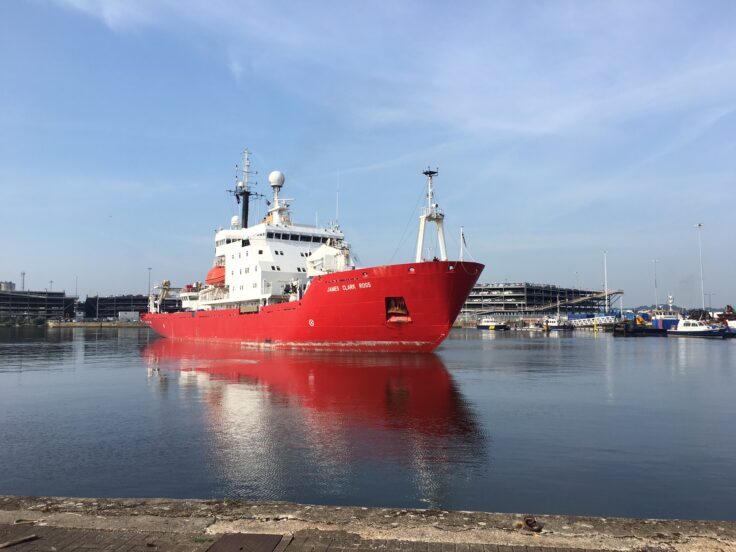Global S&T Development Trend Analysis Platform of Resources and Environment
| Update on 2020/21 Antarctic field season: responding to COVID-19 pandemic | |
| admin | |
| 2020-08-07 | |
| 发布年 | 2020 |
| 语种 | 英语 |
| 国家 | 英国 |
| 领域 | 资源环境 |
| 正文(英文) | British Antarctic Survey (BAS) provides more detail about its Antarctic season operational plan for the forthcoming field season and how it plans to keep Antarctica virus-free. COVID-19 continues to present BAS with a number of exceptional operational challenges to deliver the UK’s polar science programme, and keep research station infrastructure and scientific instruments functioning. Currently, we have winter staff at Rothera, Bird Island and King Edward Point research stations. Halley and Signy research stations are closed for the Antarctic winter. At Halley many instruments are still running using our autonomous power supply. BAS Logistics planning experts have spent the last four months consulting with UK and international polar research colleagues, medical experts and other national Antarctic programme operators about priorities, options and protocols for next season. Plans for the field season Restrictions on many aspects of logistics due to the COVID-19 situation, such as restricted travel through the normal gateways, supply chain disruption, and impacts on pre-deployment training for Antarctic staff, mean that we are planning for two scenarios next season. Scenario One is to run a minimal season, which will involve transport of around 70 staff (including the new wintering team) from the UK to Antarctica and back on the RRS James Clark Ross. The ship is due to leave the UK on 1 November and arrive at Rothera Station (with stop offs at KEP, Bird Island and Signy) around seven weeks later. To maintain safety, staff will quarantine for two weeks before they join the ship. Our gateway will be the Falkland Islands. Once on station, teams will undertake maintenance, change over staff for the next winter season, and continue long term science monitoring where possible. BAS will also continue to station aircraft in the Falklands to enable medical evacuations if required. Scenario Two: Includes all activities from scenario one but would also include: maintaining deep field equipment and depots required by international collaborative programmes, construction of foundations for the new Discovery building at Rothera Research Station, servicing of field scientific instruments, and essential maintenance at Halley Research Station. This will depend on several factors, including the Covid-19 situations in the countries where BAS aircraft and their crew transit through from maintenance in Canada to Antarctica. If construction work can go ahead at Rothera Station, 25 construction workers and support staff will depart the UK on 1 December on the RRS James Cook, operated by the National Oceanography Centre.  Around 300+ research and support staff usually head south to our stations, this year it will be between 45 and 80. This mean that BAS cannot support ‘deep-field’ research campaigns during the 2020-21 season. However, critical support work to enable these campaigns to resume in the following season will take place.
|
| URL | 查看原文 |
| 来源平台 | British Antarctic Survey |
| 文献类型 | 新闻 |
| 条目标识符 | http://119.78.100.173/C666/handle/2XK7JSWQ/286086 |
| 专题 | 资源环境科学 |
| 推荐引用方式 GB/T 7714 | admin. Update on 2020/21 Antarctic field season: responding to COVID-19 pandemic. 2020. |
| 条目包含的文件 | 条目无相关文件。 | |||||
| 个性服务 |
| 推荐该条目 |
| 保存到收藏夹 |
| 查看访问统计 |
| 导出为Endnote文件 |
| 谷歌学术 |
| 谷歌学术中相似的文章 |
| [admin]的文章 |
| 百度学术 |
| 百度学术中相似的文章 |
| [admin]的文章 |
| 必应学术 |
| 必应学术中相似的文章 |
| [admin]的文章 |
| 相关权益政策 |
| 暂无数据 |
| 收藏/分享 |
除非特别说明,本系统中所有内容都受版权保护,并保留所有权利。
修改评论